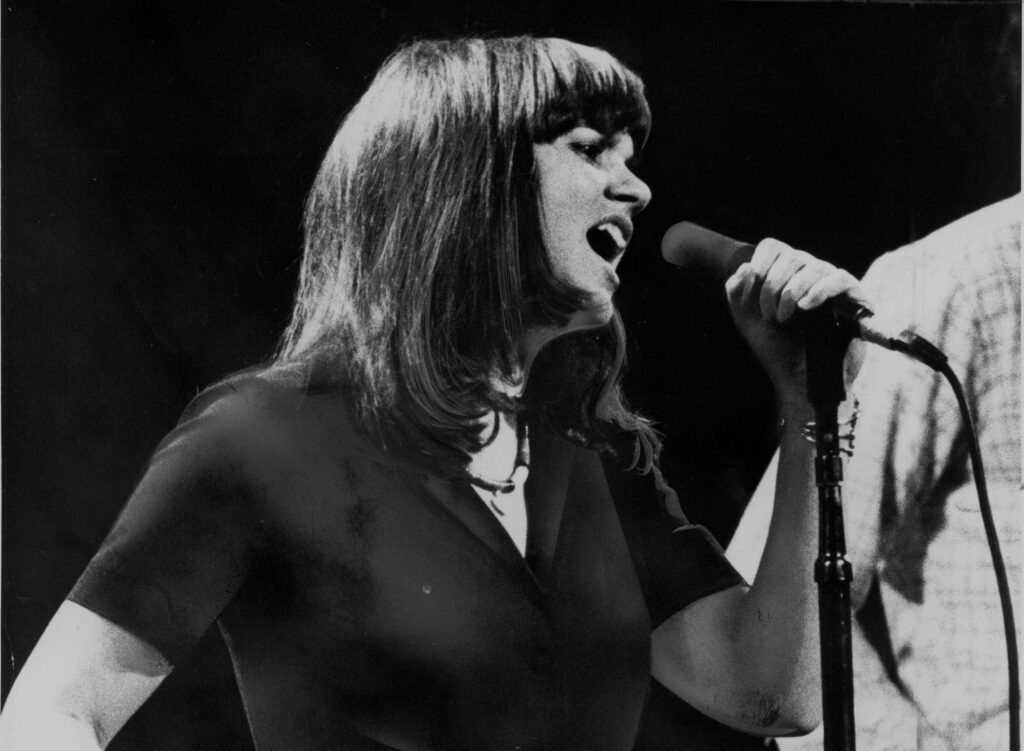
A small, tender benediction — “You Can Close Your Eyes” is a lullaby turned interior confession: a singer asking permission to rest while the world keeps spinning, and finding mercy in the hush.
“You Can Close Your Eyes” was written by James Taylor (first heard on his 1971 Mud Slide Slim and the Blue Horizon) and later given a luminous, private reading by Linda Ronstadt as the closing track on her 1974 landmark album Heart Like a Wheel. Ronstadt’s version sits at the album’s final slot, a deliberate quiet after the record’s radio-ready hits; the album itself arrived in November 1974 and became her first No. 1 on the Billboard album chart, the breakthrough that pushed Ronstadt from a beloved interpreter into a national voice.
Put the essentials at the front because they color every memory that follows: James Taylor’s original is often described as a lullaby — spare, consoling, addressed to someone for whom the singer aches. Linda Ronstadt chose to close Heart Like a Wheel with it (track 10 on side two), and in that placement she turned the song into a final blessing for the whole record—an intimate postcard tucked inside a pop masterpiece. Peter Asher produced the album, surrounding Ronstadt with a constellation of players (from Glenn Frey to Don Henley, and many of the finest L.A. session musicians), a detail that matters because this reading of the song is both personal and carefully arranged.
Listen and the differences show how interpretation reshapes meaning. Taylor’s original is close-mic simplicity; Ronstadt’s reading keeps that simplicity but colors it with the depth of her timbre and the soft architecture of Asher’s production. She doesn’t grandstand; she compresses the song into a private room. Where the lyric offers permission — “You can close your eyes and I’ll kiss your mouth” — Ronstadt makes the lines feel like instructions from someone who has kept watch for many nights and is offering the rest she knows the other person needs. The measure of her restraint is a kind of mercy: the vocal neighbors the listener rather than addressing a crowd. That small, domestic tenderness is why older listeners hear this cut as a companion rather than a performance.
There’s a beautiful domestic anecdote in the recording’s fabric: on the liner notes you’ll find names that sound like neighborhood guests—Glenn Frey and Don Henley among them—musicians who moved in and out of each other’s sessions in the Los Angeles scene of the mid-1970s. Their presence (and the arranger’s choice to leave space rather than fill it) helps the track read as a late-night kitchen conversation, not a studio spectacle. That choice is everything: the mandolin flicker or the barely-there harmony becomes a hand on the shoulder rather than a spotlight. For listeners who kept radios and record players in their living rooms, that subtlety is a memory key—the sound of grown people trading small mercies.
What is the song about, at the level older ears feel most clearly? On the surface it’s a lullaby; beneath that it’s a vow of presence. The lines ask not for grand reciprocation but for permission to be near, to be the shelter for a fragile hour. In Ronstadt’s version the meaning deepens because of context: coming at the end of Heart Like a Wheel, after songs that test love and endurance, it reads like the narrator’s final, exhausted kindness. It is the grown-up confession that sometimes love is exactly the small, steady act of letting someone rest. That is a message that lands specially true for listeners who have learned, in the long afternoons of their lives, how wearyness and mercy travel together.
A few production-and-release facts anchor the nostalgia. Heart Like a Wheel was released in November 1974, spent many weeks on the charts, and became Ronstadt’s first album to top the Billboard 200; it also earned multiple Grammy nominations and decades later was preserved in the Library of Congress for its cultural significance. The closing placement of “You Can Close Your Eyes”—a James Taylor composition—was a deliberate curatorial move that turned a borrowed lullaby into the album’s moral afterword. For anyone who owned the vinyl, that last groove is the moment you fold the cover closed and carry the record’s weather into the evening.
If you press play now—on a late afternoon, when the house has quieted—you’ll see why this cut endures for older listeners. It isn’t showy; it doesn’t demand applause. It offers a breath. In a career of bold choices and radio hits, Linda Ronstadt often revealed her deepest gifts in small gestures like this one: the ability to make a borrowed song feel like your own confession, sung for the person on the other side of the pillow. That is why “You Can Close Your Eyes” remains, for many, a private benediction we return to when the world will finally allow us to close ours.